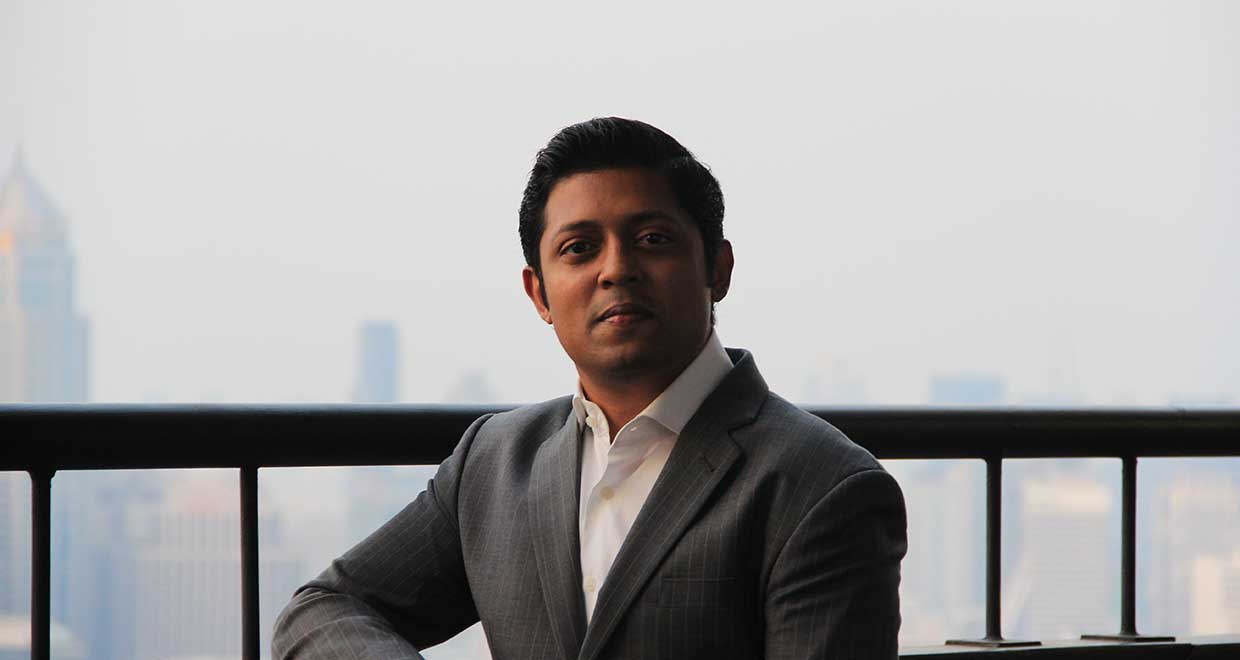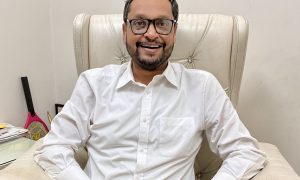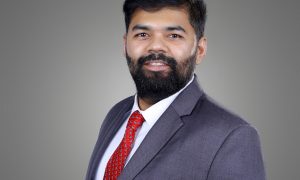Simon Zubin Rajan graduated from Symbiosis Law School in 2010. He is currently Legal Consultant at Ployprathip International Law Office Co., Ltd., where he handles Private Equity transactions and Commercial law related assignments. His profile typically entails contract drafting, due diligence, Board of Investment Promotion, Labour Law advisory as well as litigation support.
In this interview we speak to him about:
- His time in Symbiosis
- Independent practice in Calcutta
- The work ethos in Thailand
How would you like to introduce yourself to our readers?
Well, when I am not being a suit pursuing some obscure objective or an arguably just cause, I am a novice culinarian and an armchair aviator. I am in awe of the sky and the machines that take to it. I like food, drink and song, preferably with a pinch of class and refinement, but I am not averse to slumming it either, so long as the company and conversation are worth it.
Are you a first-generation lawyer?
Is that what we are referred to? A relegation to antiquity of sorts, but I could get used to it. To claim I had a ‘career plan’ would be specious–deceitful even. Like most youth, or at least that self-appointed semi-conscious intelligentsia, I had absolutely no idea where I was going to nor what it was I wanted to do–Diderot may have approved. I seriously doubted that I had a commercially viable skill set at all worth the expense of an education, until the education persuaded me otherwise. In hindsight, the law was something that happened to me. It let me take my time, and more importantly, it let me find myself. I have always had innate interest in human relationships and its constant bed-fellow, conflict. What higher ideal could there be than to resolve this, be it in the boardroom or the bedroom? To my mind the law is a means to an end–to keep or restore balance appeals to my aesthetics and affords me a sense of achievement when the day is won.
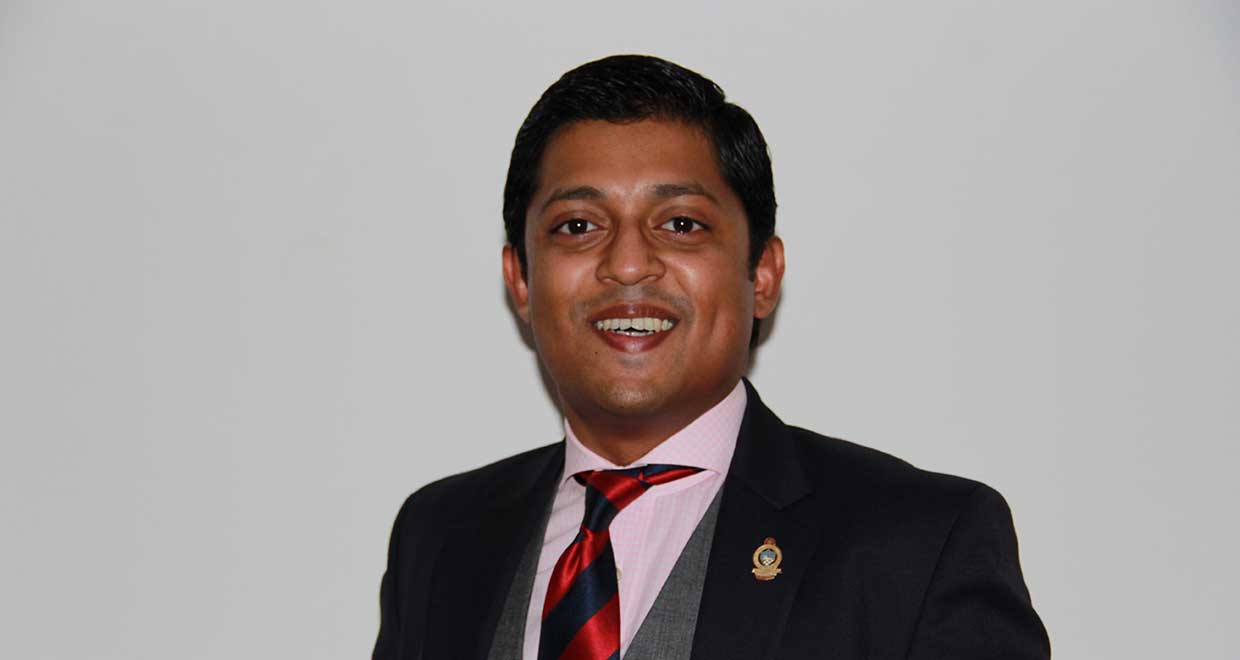
Tell us a bit about your time studying law as an undergraduate student at Symbiosis Law School.
As with most mishaps, professional or otherwise, expectations weren’t defined prior to embarking on the perilous business of acquiring an education in the law. My time served at Symbiosis Law School was more often than not characterised by a glaring lack of discipline. I should imagine that is probably why the rather feeble imposition of a uniform by the college administration. I did manage to get a word in at the occasional debate and essay not just for myself but for others too. Learning how to swim at the Khadki pool, was a personal epoch on the extra-curricular front, an experience that resonated with my academic struggles when a trusted fellow opined in rather deadpan tones over heavily chlorinated water, “Dude, the lifeguard will throw you out if you don’t learn to swim within the next ten minutes. That, or I will drown you!”
Could you tell us about the internships you took up, and what you learnt from those experiences?
Internships seemed to reinforce a rather droll suspicion I harbored of the faculty who had the grave misfortune to teach me–that they were dispatching the lot of us to a pre-determined fate ill prepared and none-the-wiser. Poor attempts at levity aside, internships lent much needed perspective to the overly pedantic leanings of legal commentary and misconstrued interpretations. My internships were almost always at the solicitor firms of distinction and repute that crowd Old Post Office Street opposite and adjacent to the High Court at Calcutta, and usually over the holidays as an ostensible ruse to keep me busy and out of trouble.
My novice years were often enlightening in ways that I never expected. One particular interaction with the venerable R.N. Jhunjhunwalla at Khaitan and Co., Calcutta, during the summer of 2006 if memory serves, is worth the reminiscence. Subsequently after a breathless but convincing spiel as to why I sought to intern at his firm, I enquired of him as to who was the most important person in his office. After some deliberation, he pointed to his chauffer. Throwing caution to the wind, I probed further to discern the reason why he of all the mighty souls at Emerald House was anointed with this rather heavy onus. It turned out the indubitable chauffeur was then the only keeper of the keys to the office and nobody would be able to get in without him! The fact that R.N Jhunjhunwala was magnanimous enough to pay yours truly a stipend in honorarium–a princely sum of a few thousand rupees still affords me a sense of warmth even today when freezing the family jewels in an ivory tower.
In my final years at law school, I interned with Marzia Rohani-Dalal, an intellectual property legal consultant in Pune. It was under her tutelage, that I half-learnt that a highfalutin vocabulary and unwarranted hubris do not maketh the man; integrity and kindness do.
What areas of law interested you during your legal education?
Constitutional Law, Evidence, Medical Jurisprudence, Philosophy, Psychology, Criminology and Criminal Law, International Law and Political Science.
Tell us about your early professional experiences at Radhika Singh & Co.
Green but beady-eyed from law school, hers was the only offer on the table. That and naiveté, were the deciding factors.
What prompted your move from Radhika Singh & Co. to taking up a position with R. Ginodia & Co.?
I loathe being diplomatic but this once I will peg it down to professional differences. R. Ginodia & Co., was a buttress from a looming fate of becoming a professional bum–culturally a much favoured vocation of the youth of Calcutta. Pecuniary compensation was pathetic to say the least, a reflection of the paltry value ascribed to human life not just in the glorious state of West Bengal. The omniscient chief minister had even contemplated a thousand-rupee stipend for aspiring young legal beagles–verily a shining example of State apathy to the monetary incentive required to take up the practice. As a tyro, people will do and say their damnedest to impress upon you the nobility of the profession and how long and what they did to establish themselves, but you have to look deep down inside to find what it is you truly stand for. You can go only so far with someone else’s reasons.
What kind of cases did you take up after you started independent practice in Calcutta in 2011?
The work profile typically entailed international as well as domestic transactional work and even some criminal matters, besides advisory and drafting assignments. Naturally, getting work was the primary concern but it was not something I lost too much sleep over. Strife and hardship, if one is mindful about it, breed a sublime sense of self-confidence. Once the volume of work started to build, biting off more than I could chew became the next dilemma. While you shouldn’t be afraid to share and spread the wealth, collaboration has its own pitfalls–you must be very careful as to whom you choose to work with.
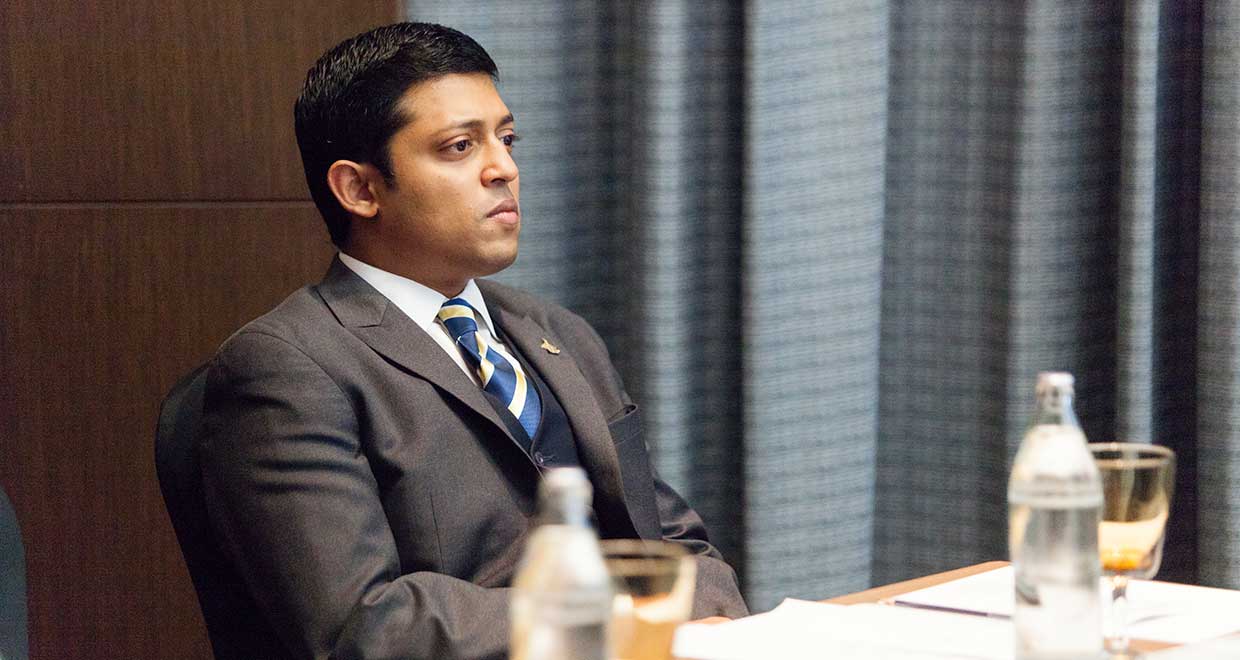
Please share with us some of the interesting cases that you worked on.
Without going into yawn worthy details, I cut my teeth with one of my first advisory assignments. I was privately counselling a regional union leader in the giddy sway of the popular vote elected to proceed with a strike action while on the payroll of a loss making public utility service, despite a court order and advice to the contrary. From the client’s perspective, in light of severely throttled salaries and arrears over a period of six long months of penury, a strike was perhaps justifiable. Alas, not quite under the law. The contempt proceedings that followed may have been a vindication of advice rendered, and even earned me return business, but there is a distinct truth in the old proverb, ‘the path to hell is often paved by the best intentions’. Your advice is discrete from a client’s actions. Professional detachment is mandatory. This certainly helps during collection.
Could you tell us about your transition from litigation to core corporate work?
My being a foreigner precludes the possibility of appearing in a Thai Court of Law–hence the transition. Nevertheless, litigation avoidance, negotiation and alternative dispute resolution are still within my domain of expertise besides corporate work.
On what parameters do you choose the projects you work on?
Fee quote acceptance and execution capacity are the foremost considerations. I certainly do attempt to specialize in a specific body of work–being private equity transactions and arbitration. Of course, bridging the gap between desired work and actual assignments could possibly be a task better suited to the Bombay Sappers.
Can you tell us about your role as the Senior Associate at Ployprathip International Law Office, Bangkok, Thailand?
My profile has evolved from being execution centric to now involving client handling and liaison, and as a result has acquired an element of management that covers engagement, workflow and personnel, client retention, as well as billing and collection; in other words, the entire work cycle-reminiscent of my days as an independent practitioner.
What is the experience like working in Thailand? Do you intend to return to India eventually?
When I first arrived here on holiday in 2012, Thailand struck me as the India that never was. The cultural and religious similarities echo in many aspects of daily life. Our best attributes are manifest. Confrontations and conflict will be assiduously avoided–professionally and legally even. Thai dispute resolution procedure incorporates provisions for court supervised mediation which are regularly invoked thereby effectively reducing the caseload unlike in India where the pendency of cases is only mounting with every passing day.
You can’t get away with irate and inconsiderate conduct–your job just won’t get done. Procrastination can be an issue especially with impossible deadlines, but with relationships taking precedence, there is always a way here in Thailand. I have acquired a reputation of being a hustler, as is typical of most of Indians abroad, one that I am not averse to.
With regard to returning home, this is not on the immediate horizon especially since the prevailing rate of taxation is significantly lower than in India given my level of income and more so because there is a greater tangible correlation between the infrastructure provided by the government in return for taxes paid.
What are the key nuances in advising clients successfully and developing a proficiency in corporate drafting and advisory?
Comprehending commercial intent in context of what is permitted by the law and what is not, is crucial. Often, you may have to ground your client and when you do, you should have a better alternative to the one whose plausibility you have called into question.
Outlining expectations and billing is imperative-especially when payments are due from clients in different jurisdictions unfamiliar with local ethical rules. Never lose sight of the money.
I apply the OODA (Observe, Orient, Decision, Action) loop to my work process, (somewhat synonymous with the IRAC methodology) which is an air combat theory propounded by USAF Colonel John Boyd, that emphasizes on agility over power (or leverage) to manoeuvre within an opponent’s tactics. It is especially relevant to adversarial situations and even business continuity planning where it is comparable to the Shewhart cycle. There is an order to chaos.
#1 lesson for rookies-Know Your Client! Know exactly whose interest it is your job to uphold and where the line must be drawn between professional care and personal obligation.
Did you have a mentor or guide during the formative years of your career?
A fair number of my friend’s hail from top tier firms and are kind enough to keep me informed of trends and developments in the practice, especially the best sources online to continually enhance my knowledge quotient–so they are my guides and benefactors. In fact, I try and learn something from every single person I meet or do not meet–this way I transcend the superficial and build meaningful relationships, however brief.
Mentorship is vital. You need to have someone not just to inspire you, but to also point out a better and faster way of getting the job done-somebody to watch and learn from while you practice your art.
How do you manage your time between your professional and personal interests?
I believe in getting things done on time and honing my situational awareness to anticipate and act decisively before things go FUBAR. There are certainly days when time-management goes out of the window, but the objective of a successful practice is for your client to take a calculated risk acting on reliable advice as opposed to an uncalculated risk hinged on arbitrary time and cost constraints.
While the practice of law itself has managed to pique my curiosity over these last seven years, at the end of the day, the nature of the profession is such that we are bootmakers to kings, to borrow an expression from the film, The Good Shepherd. Lincoln could not have put it better, ‘A lawyer’s time and advice are his stock in trade’. It would be dangerous to allow the paucity of one to impinge on the other.
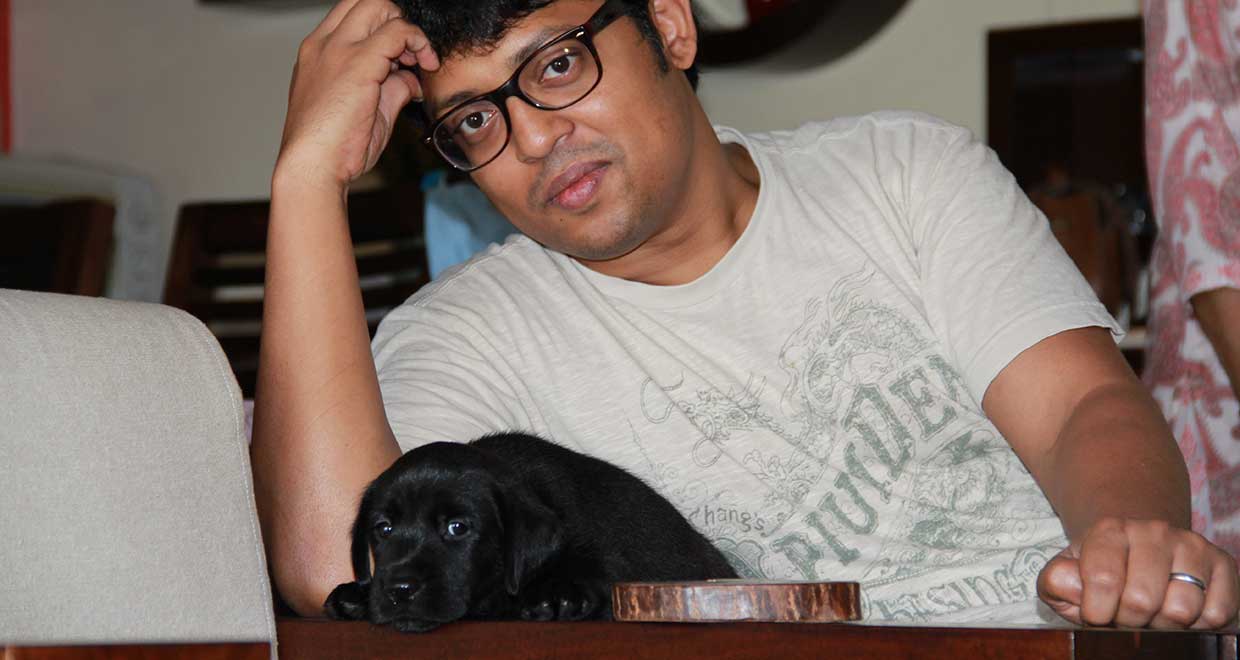
What are the challenges you have faced in building up your career as it stands today?
The hurdles have almost always been a construct of fear; a trepidation of whether work would be futile; if futility was obvious, how was I then to improvise and get around and on top of a situation; fear of how a maverick strategy would be received and implemented; fear of committing to something; a performance anxiety in a manner of speaking-but then as you get older, you begin to appreciate and work with it-it is verily the harbinger of the thought process that makes a good idea better; that failure in itself is a test by fire so that you can improve on the enterprise you embarked on so long you keep at it. Ultimately somebody is going to give up. It just isn’t going to be me.
Five years down the road? ‘Do I dare to eat a peach?’ Partner, if my practice is up to snuff.
Giving the dynamic nature of the field you practice in, how do you keep yourself updated about the latest happenings in the law?
Read voraciously. Read, read, and read some more. Digital, paper, whatever-anything you can get your hands on. Subscribe, if you must, to blogs and online legal news. Find out what your competitors are up to. Have an ear to the ground. Take the time to acquire actionable intelligence. Be curious. Be flexible. Not knowing, is not an excuse.
What advice would you like to give our readers, who are mostly law students and young lawyers?
Stand up for what you believe in. If you can’t, you are probably not going to do a very good job of representing someone else. And if you are going to take a stand, know your ground.
“As soon as we abandon our own reason, and are content to rely on authority, there is no end to our troubles.” Bertrand Russel.

